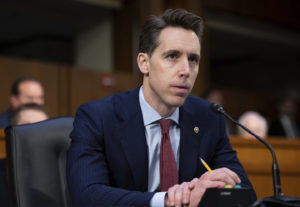Texas House passes bill banning child gender modification procedures
(The Center Square) – The Texas House passed SB 14, a bill banning child gender modification procedures. The measure passed after multiple attempts were made by Democrats to kill it and after…

(The Center Square) – The Texas House passed SB 14, a bill banning child gender modification procedures. The measure passed after multiple attempts were made by Democrats to kill it and after protestors disrupted House proceedings and were arrested.
The bill passed with bipartisan support. Some Democrats joined Republicans in a vote of 92 to 48, although the tally hasn’t been certified by the House Journal Clerk. Some suggest not all 11 Democrats listed as voting for the bill actually did.
The bill survived several attempts to kill it, including Democrats calling multiple points of order, a procedural move in the Texas House rules that lawmakers use to try and defeat a bill by claiming they found an error. Last week, Democrats called a point of order twice, sending the bill back to committee. The committee then advanced the bill again, but was delayed again until it was heard on Friday, when multiple points of order were called on 19 proposed amendments. The majority of amendments failed.
SB 14, filed by Sen. Donna Campbell, R-New Braunfels, passed the Senate five weeks ago. It’s companion bill, HB 1686, was filed by Rep. Tom Oliverson, R-Cypress,.
If signed into law, it would prohibit procedures and treatments for gender transitioning or gender reassignment from being performed on minors suffering from gender dysphoria and prohibit public money or public assistance from being used to fund such procedures and treatments.
It amends the state Health and Safety Code to prohibit a child health plan, including health-care providers and Medicaid, from providing coverage for services “intended to transition a child’s biological sex as determined by the child’s sex organs, chromosomes, and endogenous profiles,” according to the bill language.
The bill prohibits surgeries from being performed that sterilize children, prohibits providers from prescribing, administering, or dispensing prescription drugs that induce transient or permanent infertility, puberty suppression or blocking prescription drugs to stop or delay normal puberty, supraphysiologic doses of testosterone to females, or supraphysiologic doses of estrogen to males, and prohibits the removal of any otherwise healthy or non-diseased body part or tissue.
It also prohibits public money from funding directly or indirectly health care providers, medical schools, hospitals, physicians, or any other entities or individuals that provide these treatments, including Medicaid reimbursements. It also instructs the Attorney General’s Office to enforce the law.
During floor debate, Oliverson said the bill doesn’t ban the treatments when they are medically necessary. He also said he was trying to return medicine to its “normal” practice; “normal as defined for more than 100 years of health care.”
“We don’t treat mental health disorders with surgery, we treat mental health disorders with mental health treatments,” he said.
Rep. Shawn Thierry, D-Houston, issued a lengthy statement explaining why she voted for the bill. After “hearing from constituents, listening to stakeholders, and reviewing the scientific data in this country,” she said she was “assured that this position is rooted in sound policy which supports the health, development, and overall well-being of minors.”
She also pointed to scientific data showing that children’s brains are not fully developed under age 18, saying, “clearly, children as young as 8, 9 or 10 years of age are wholly incapable of understanding that these medical treatments may require that they remain medical patients for a lifetime.”
She also asked, “what are the long term effects of administering the chemotherapy prostate cancer drug (and chemical castration drug) … to a child who is otherwise physically healthy but who is experiencing gender dysphoria?”
She also said, “we should remain consistent in the premise that children must be given special provisions under the law as they cannot fully appreciate the long term consequences of their actions” and that the purpose of the law was to protect children.
A recent poll of registered voters in Texas found that 60% oppose chemical or surgical gender transitions for children.
SB 14 goes before the House for a third and final reading before it can be approved and sent to the governor.



